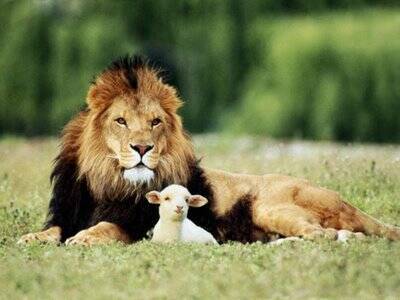Cambridge, MA. The Pope’s comment to a boy whose dog had died, that “Paradise is open to all of God’s creatures,” made the news everywhere today (December 12), including a front page article in the New York Times. Since James Martin, SJ, quoted in the Times article, has already written extensively here about the Pope’s comment, I need not retell the story here. I add just four comments.
First, while I very much like and admire Pope Francis, and like the consoling assurance that heaven is open to all, it seems a bit overdone for the media, Catholic included, to marvel over yet another of his comments. Pope Pius IX denied that animals had souls and excluded them from heaven; Pope Francis seems to open heaven to them. Neither comment merits our unthinking acceptance or excited fascination. Can we not take their comments on animals, souls, and heaven as seriously, but no more seriously, than we take the comments of people we meet every day?
Second, it is surely very right to admit and honor what we share with animals (and plants too, but that's another essay): we are all alive, part of a single great ecological whole, God’s Creation. Hindus and Buddhists can teach us much here: all life is connected to all life, infinities of life exist around us and within us. We need not be afraid of the truth that we are not separate, entirely unique, entirely apart. And if we do have so much in common, can anyone really think that heaven will be the final refuge and home-coming only for humans and for no other forms of life? If we imagine heaven as a place, would we really want to imagine it as bereft of animals and plants? Who do we thnk we are?
Third, and even better, we might do well to put aside too-literal images of heaven, and listen to St. Paul: Listen, I will tell you a mystery! We will not all die, but we will all be changed, in a moment, in the twinkling of an eye, at the last trumpet. For the trumpet will sound, and the dead will be raised imperishable, and we will be changed. For this perishable body must put on imperishability, and this mortal body must put on immortality. (I Corinthians 15: 51-53) Or if you prefer, let's listen to St. John: Beloved, we are God’s children now; what we will be has not yet been revealed. What we do know is this: when he is revealed, we will be like him, for we will see him as he is. (I John 3:2) What we shall be in the end, in and with God, is beyond our imagination; we do not know what we are talking about, really. So why imagine it and talk about it in a stingy way, so as to exclude other living beings from the great transformation of the world that is God's plan, our destiny?
Fourth, the real problems lie here, on this earth. Every day, we confront two scandals. On the one hand, it is a very sad fact that we see humans abused, deprived, subjected to violence —treated as if less important than our pets. It is not that we should not have pets or care for the ones we have; indeed, caring for animals might, under the best circumstances, help us to care better for one another. But it is a scandal that too many of our human neighbors—those we are most closely akin to—are treated, ironically, as if they are “mere animals.” We need to care, here and now, for every human being, and make sure no one among us is lacking the necessities of life and love. If there animals in heaven, let’s promise to make sure that no human being suffers hell on earth. Let God's will be done on earth, as it is in heaven.
On the other, there is the sad fact that most of us still eat animals, a cruel luxury that really has no justification, certainly not religiously. Perhaps eating animals is not a sin (as the Times article opines). It is true too that I, who have more than enough to eat (even as a vegetarian), have no right to criticize poor people who eat what they can, including animals. But surely, most of us, most of the time, should simply stop eating animals. Eating meat is unnecessary, an unacceptable pleasure, and a waste of food (since the food the animals eat would feed us just as well). And it is cruel: who in this country today does not know the cruelty of the mass production of animals, who exist only to be led into the cruel slaughter houses that provide the neatly packaged food that appears in our supermarkets? We know it, and we avert our eyes, and keep eating animals as if this is God's will.
If in that final fullness of life with God, animals too will be present in the great new reality God has in store for us—a Paradise open to all—would we not do well to live together in peace now, aiding our brothers and sisters who live in poverty—and killing animals, small or large, pet or foreign to us, as rarely as possible?








Mr Snowden, Thanks for your comment. A blog isn't the place for a full-blown explanation of something, but in the course of my further reflections on the Pope's comment, I gave the reasons for vegetarianism in our day and age, as briefly as possible: 1) "Eating meat is unnecessary, 2) an unacceptable pleasure, and 3) a waste of food (since the food the animals eat would feed us just as well). And 4) it is cruel" FXC